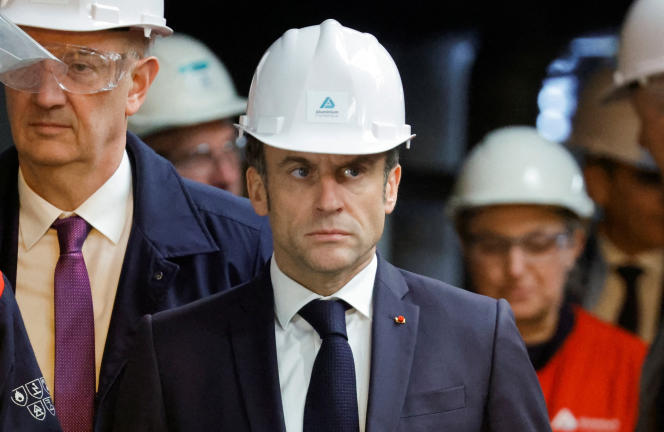The observation has been made a thousand times. France is one of the European countries which has deindustrialized the most, destroying “nearly a million industrial jobs” since 2000, in the words of Emmanuel Macron, on May 11, during the presentation of the bill on “green industry” at the Elysée. A silent drama, the extent of which the Covid-19 outbreak has brought to light our many supply dependencies has revealed.
Identified more for his proximity to the “start-up nation” in 2017, the Head of State took up this question in the wake of the health crisis, expanding since then on the argument of the virtues of the industry. This provides “good jobs”, “better paid than others”, he recalled, on May 11. It creates wealth and therefore makes it possible to finance the French social model, “the most ambitious in Europe”and public services throughout the territory, a factor of “cohesion”. It is also a “key issue for the climate” since, by producing on national soil, the impact on the environment is minimized.
It is, finally, the heart of this sovereignty “national and European” which is dear to him, a strategic issue of economic security in the context of the return of war in Europe. A “economic, political, territorial and geopolitical battle” in sum. An electoral issue, he could have added: deindustrialized regions are chosen lands for the extreme right.
This message, Emmanuel Macron will repeat it once again in the coming days, during three trips intended to highlight what he sees as the result of his policy in favor of competitiveness since 2017 (decreases in taxes and contributions, reforms and massive recovery plans).
The Head of State will travel to Ardèche on Tuesday June 13 to announce an investment by the pharmaceutical company Aguettant, an opportunity to talk “drug relocation”, according to the Elysée, while France experienced supply tensions this winter and that, three years after the health crisis, between 60% and 80% of these are still made in China. The next day, at the Viva Tech show in Paris, a global tech meeting, there will be talk of “technological sovereignty”. Then, Monday, June 19, at the Paris Air Show, he will talk about decarbonization of the aeronautical industry.
The story of an industrial metamorphosis of the country
The inauguration on 30 May of the Automotive Cells Company (ACC) battery “gigafactory” in Pas-de-Calais, the first of four sites in the future electric “battery valley”, supplied the account of an industrial metamorphosis of the country.
You have 61.07% of this article left to read. The following is for subscribers only.
